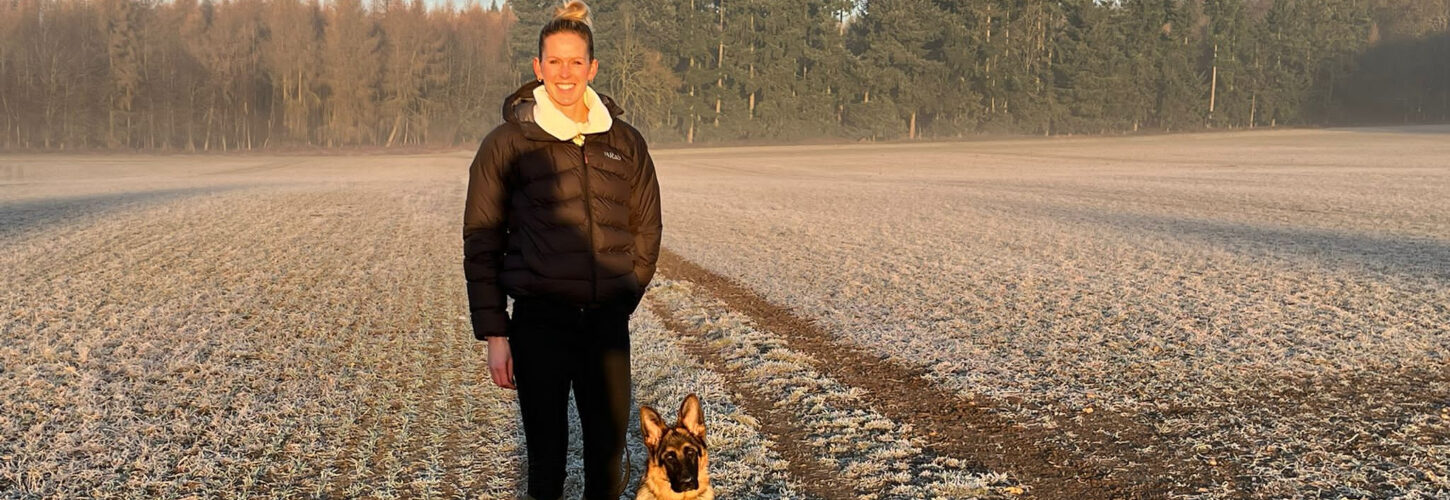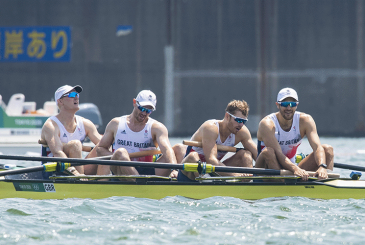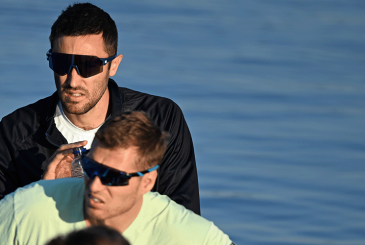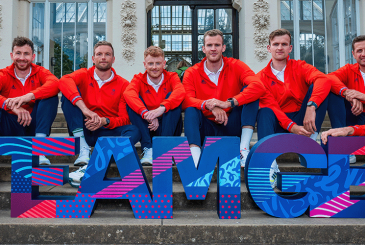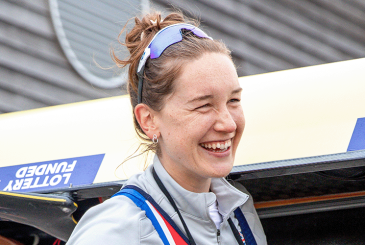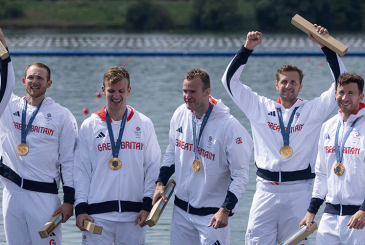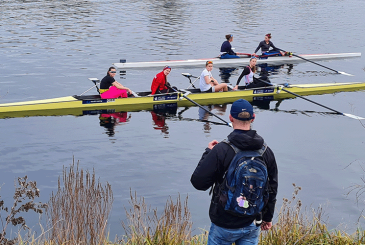Olympic silver medallist Vicky Thornley shares her top tips on relaxing and scheduling recovery time in a busy world!
Life can sometimes get on top of us. We can have an endless to do list and not enough hours in the day. The to-do list can be work related, but it can also include such things as, checking in on a neighbour or getting a quick workout in after work. However, very rarely does our list schedule in ‘recovery time’.
Recovery time can be anything that you find relaxing, or anything that gives you the time to switch off from your daily stressors. Today, stressors can be environmental, such as a work deadline, or psychological, such as persistent worry about relationship troubles. Of course, at times, stress can be a good thing. It enables us to perform at our best, whether that is at work or in your chosen sport.
Also physical stress on the body during exercise is essential to trigger adaptation, to make us stronger and fitter. Problems can occur though when these stressors become too much and your recovery time isn’t sufficient. Let’s dig a bit more into the science.
The autonomic nervous system has two components: the sympathetic nervous system and the parasympathetic nervous system. It is the sympathetic nervous system that triggers the well-known ‘fight-or-flight’ response. When the body senses a stressor, the reaction to it is well orchestrated. Certain hormones, like adrenaline and cortisol, are released to change a number of autonomic nervous functions, including an increased heart rate and slowed digestion, to give the body a burst of energy and strength. As hunter gatherers, the ‘fight-or-flight’ response was a survival mechanism, providing us with energy to run from predators. Given this mind and body connection, research has suggested that chronic stress can contribute to many illnesses, eg. high blood pressure, decrease immunity, and even depression.
“Try going for a walk in a local nature spot, leaving your phone at home”
The parasympathetic nervous system can be seen as our safety net, if given the opportunity to kick in. Once the stressor or danger has passed, it calms the body down, creating a ‘rest and digest’ state, allowing the body to relax and repair. Ideally, we want to exist in this state, more than the former.
So, how can we help keep our body and mind in a balanced state, utilising both the sympathetic and parasympathetic nervous systems? When I was an athlete, I was unable to use exercise as a stress reliever due to it being my job, so I learnt other ways to relax at the end of a training day. Now being retired from full-time sport, I still use these practices alongside exercise to help optimise my overall mental and physical health.
Time in nature
I am lucky to live in the countryside, a short walk from a forest, and it is here I feel the power of nature to reduce stress. A study by Cornell University found that as little as 10 minutes in a natural setting can help college students feel happier and lessen the effects of both physical and mental stress.
Try going for a walk in a local nature spot, leaving your phone at home. When you are walking tune into your five senses. What do you see around you? What does the surface you are walking on feel like? What can you smell – cut grass or wild flowers? Can you the hear birds sing or children playing? Can you taste anything in the air? Focusing on any of these will bring you into the present moment, to appreciate nature and will help to calm your mind and body.
“I first used mediation to help with performance; I soon started to appreciate the benefits it brought me away from the start line”
Mindfulness and meditation
Modern technology has led to us being bombarded with information, email alerts, social media and phone calls; it can be non-stop. This pulls our attention away from being in the present moment. When I was racing, I knew to be at my best, my mind had to be in the present moment, enabling me to concentrate on the stroke I was on. Adrenaline and nerves would often have my mind travelling to races in the past, or thinking of how this race might unfold. Mindfulness and meditation practice helped me manage this, and I was able to control my thought processes.
Even though I first used mediation to help with performance, I soon started to appreciate the benefits it brought me away from the start line.
As Headspace describes it: “On the most basic level, being present means being focused on one thing without distraction, without being in your head and lost in thought. At a deeper level – it means being able to sit with challenging emotions that we feel, when we feel them.”
Why not try it for yourself and see if you can feel the benefits. Two great apps to get started with are Headspace and Calm.
Yoga
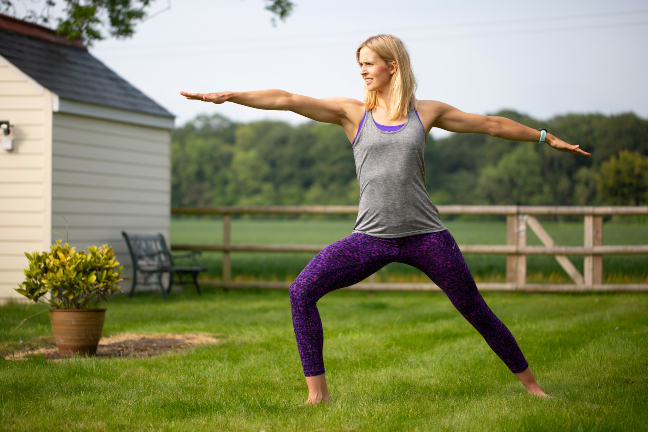
Yoga is great for mind and body. It increases strength, flexibility and balance in the body, as well as demanding mental discipline. It is a series of postures and controlled breathing exercises, something I have found helps with relaxation. For me, it especially has a great impact on my quality of sleep. Try looking for a local class or search online. ‘Yoga with Adriene’ is one of my favourites.
“Sleep is a completely free source of health and happiness”
Prioritise sleep
The importance of sleep is getting a lot more air time. Sleep is a completely free source of health and happiness. Too little sleep has a whole host of negative mental and physical health implications.
Have you ever noticed how you crave different foods after a bad night’s sleep, or that you can have a shorter attention span? Sleep enables our body and mind to recharge and no one can live without it.
To ensure a good night’s sleep I stick to a few key things. Firstly, I have an alarm clock and keep my phone downstairs. This was something I recently suggested to a friend, and after just one week she confirmed it has completely changed her sleep. She says she falls asleep quicker, has a more restful night and wakes feeling more refreshed.
Have a consistent wake time. This will help your sleep quality, as it helps build a strong desire for sleep throughout wakefulness. This sleep drive gradually builds, and shortening it by sleeping in will make it harder to fall asleep the next night.
Read a book. Often I only make it a few pages, but reading a book before I turn out the light always helps send me to sleep. Try and resist the urge to be on your phone close to bedtime.
If you want to learn more about sleep and why we must prioritise it I would strongly recommend the book ‘Why We Sleep’ by sleep scientist Matthew Walker.
Time with loved ones
It wasn’t until I couldn’t see my friends and family during the Covid lockdowns that I realised how important they were to my happiness. Spending time with the people we love really does wonders for our mental health. As humans we are very social beings, so put dates in your diary for dinners, walks and coffee dates with the people who give you energy.
These are just some of the things that help me recover mind and body. You may have others, but just remember without recovery we are unable to perform at our best.


